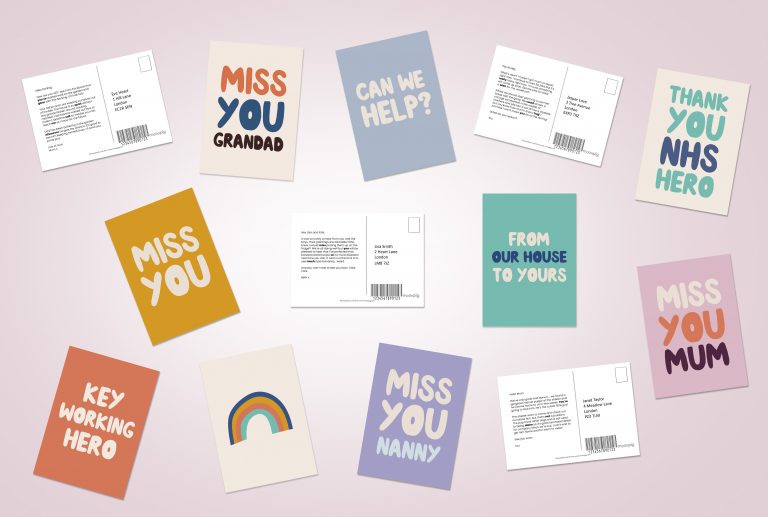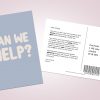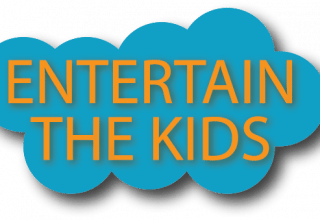
NEWS COPY
Moonpig have launched a mental health awareness campaign – encouraging Brits to find their voice, reach out to people who may be struggling and to ‘see the hidden message’ when communicating with friends and family.
[youtube https://www.youtube.com/watch?v=3ftJvAtrwbs?feature=oembed&w=1200&h=675]
As the camera gets closer, the words fade to reveal the ‘hidden message’, something which the sender wanted to say but found difficult to express.
In one of the videos, a mother writes to her child, commenting on recent Facebook posts, on her challenges using technology, and gardening.
Towards the end of the video, the hidden message emerges: “You’ve gone quiet, call me whenever”.
In another video, we see a note from a friend mentioning job hunting and planning a summer break.
The real message is then revealed as “I really wish I could hug you”.
The week-long campaign has been created to encourage us all to open up during mental health awareness week.
Sarah-Jane Porter, Head of Cards at Moonpig said: “They say a face can tell a thousand stories, but when we can’t see our loved ones in person it’s much harder to know what is going on with them, let alone in their heads.
“Many of us have grown quite used to video calls by now, but expressing how you feel can sometimes be difficult.
“This is why we wanted to help people feel more comfortable to express the things that matter, and reach out to each other during Mental Health Awareness Week with 5,000 free postcards for five days on the Moonpig app.
“Written messages allow us to pour our emotions onto paper without any pressure. It’s easier to express feelings, concerns and care – things that many might feel uncomfortable saying out loud in person.”
“It’s important for us at Moonpig to help people stay connected with the ones they love, even when they can’t see them.”
jQuery(document).ready(function($) {
// We only want these styles applied when javascript is enabled
$(‘.gal_content’).css(‘display’, ‘block’);
// Initialize Advanced Galleriffic Gallery
var gallery = $(‘#thumbs_39365_1’).galleriffic({
delay: 3500,
numThumbs: 12,
preloadAhead: 12,
enableTopPager: false,
enableBottomPager: false,
imageContainerSel: ‘#slideshow_39365_1’,
controlsContainerSel: ‘#controls_39365_1’,
captionContainerSel: ‘#caption_39365_1’,
loadingContainerSel: ‘#loading_39365_1’,
renderSSControls: true,
renderNavControls: false,
playLinkText: ‘Play Slideshow’,
pauseLinkText: ‘Pause Slideshow’,
enableHistory: 0,
autoStart: 0,
enableKeyboardNavigation: true,
syncTransitions: false,
defaultTransitionDuration: 300,
onTransitionOut: function(slide, caption, isSync, callback) {
slide.fadeTo(this.getDefaultTransitionDuration(isSync), 0.0, callback);
caption.fadeTo(this.getDefaultTransitionDuration(isSync), 0.0);
},
onTransitionIn: function(slide, caption, isSync) {
var duration = this.getDefaultTransitionDuration(isSync);
slide.fadeTo(duration, 1.0);
// Position the caption at the bottom of the image and set its opacity
var slideImage = slide.find(‘img’);
caption.fadeTo(duration, 1.0);
},
onPageTransitionOut: function(callback) {
//this.hide();
setTimeout(callback, 100); // wait a bit
},
onPageTransitionIn: function() {
var prevPageLink = this.find(‘a.prev’).css({‘opacity’: ‘0.3’ , ‘display’ : ‘inline-block’, ‘cursor’ : ‘default’});
var nextPageLink = this.find(‘a.next’).css({‘opacity’: ‘0.3’ , ‘display’ : ‘inline-block’, ‘cursor’ : ‘default’});
// Show appropriate next / prev page links
if (this.displayedPage > 0)
prevPageLink.css({‘opacity’ : ‘1’ , ‘display’ : ‘inline-block’, ‘cursor’ : ‘pointer’});
var lastPage = this.getNumPages() – 1;
if (this.displayedPage < lastPage)
nextPageLink.css({'opacity' : '1' , 'display' : 'inline-block', 'cursor' : 'pointer'});
this.fadeTo('fast', 1.0);
}
});
/**************** Event handlers for custom next / prev page links **********************/
gallery.find('a.prev').click(function(e) {
gallery.previousPage();
e.preventDefault();
});
gallery.find('a.next').click(function(e) {
gallery.nextPage();
e.preventDefault();
});
});
Mental health charity Mind has some tips on how to open up to loved ones, believing that while it is normal to worry about telling someone how you feel, trying to deal with things on your own can make things worse.
They say that talking to someone you trust can help you to feel like you’re not alone, feel supported by those around you and find treatment and support options to help with how you’re feeling.
It can also stop things from getting worse and allows you to find others who have been through similar things.
Mind also advises that if you’re worried about telling someone how you feel, it can help to feel prepared for the conversation.
Mind’s tips for telling someone how you feel:
· Find a way that feels right for you – sometimes you might want to talk face-to-face but if this feels too difficult you could try talking on the phone, sending a text or email, writing a letter or drawing how you feel.
· Find a good time – the time may never feel perfect, but it can help if it’s when they can give you their full attention and it’s in a place where you feel comfortable.
· Practise what you want to say – this could be in your head or with a friend. You could even try writing things down.
You can also find more information and support on Coronavirus and your mental health on Mind’s website, here.
Moonpig will be offering 25,000 free postcards for Mental Health Awareness Week – 5,000 per day for five days – to encourage people to say the things that matter.
Using the APPFREEPC voucher code on the app, people will be able to send a free postcard to anyone they feel need support. The code will be live 20-24th May, but the offer is limited to one free postcard per person.
The free postcards are available on the Moonpig app on this link here.
Moonpig’s new ‘Just to Say’ postcard range also forms part of this initiative and can be found here: https://www.moonpig.com/uk/personalised-cards/postcards/
[youtube https://www.youtube.com/watch?v=QPGt6A-maLM?feature=oembed&w=1200&h=675]
[youtube https://www.youtube.com/watch?v=D7KfwcAC5rA?feature=oembed&w=1200&h=675]
[youtube https://www.youtube.com/watch?v=3ftJvAtrwbs?feature=oembed&w=1200&h=675]
[youtube https://www.youtube.com/watch?v=4Qryh0KpeFY?feature=oembed&w=1200&h=675]
ENDS


























